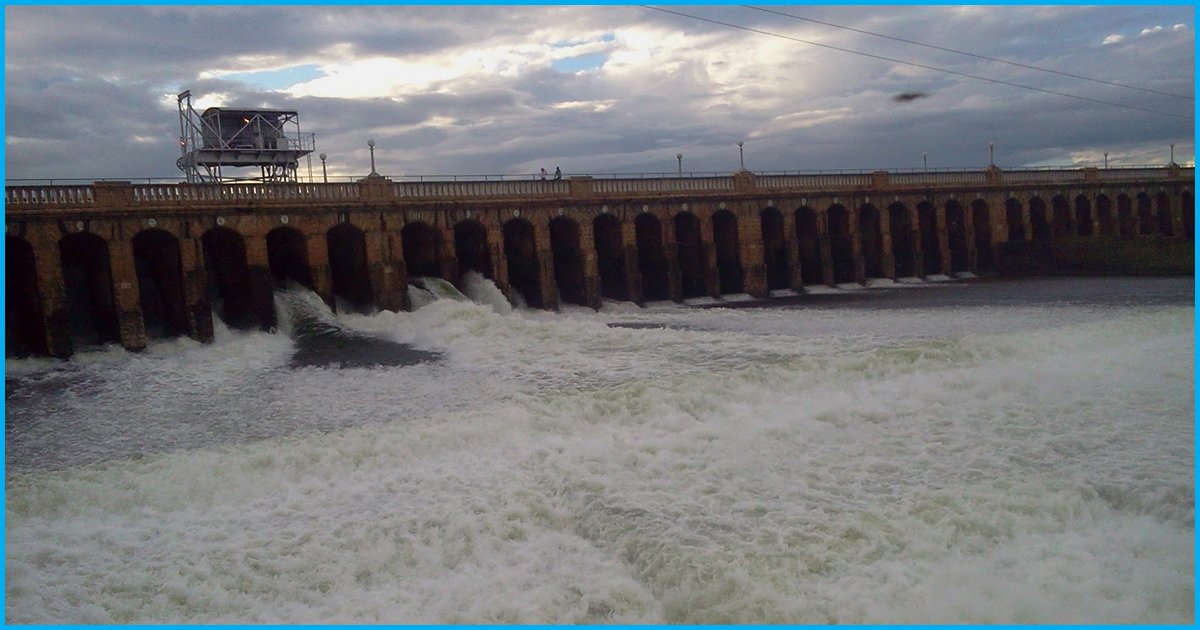
Cauvery Verdict: Supreme Court Asks Karnataka To Release 177.25 TMC Of Water To Tamil Nadu
16 Feb 2018 10:43 AM GMT
The Supreme Court has ordered Karnataka to release 177.25 TMC of water to Tamil Nadu. They were already releasing 192 TMC to Tamil Nadu. The Court observed the water crisis Bengaluru is reeling under and considered the decision.
A three-judge bench headed by Chief Justice of India Dipak Misra gave the Cauvery verdict while hearing Karnataka’s Special Leave Petition (SLP) against the Cauvery Water Disputes Tribunal’s grant of a water-sharing formula between Karnataka, Tamil Nadu, Kerala and Puducherry, reports News18.
The Supreme Court said that the verdict will remain for 15 years and after that, the apex court will monitor the implementation of the order.
Security has been beefed up in Bengaluru, with schools declaring a half day for students.
Tamil Nadu is not satisfied with the verdict. AIADMK leader V Maitreyan said “The people of Tamil Nadu feel that they have not got justice. The central government should immediately form Cauvery Management Board.”
Last Verdict
After repeatedly defying Supreme Court’s order, on Monday night Karnataka finally bowed down to pressure and released water from the Cauvery river to Tamil Nadu.
Earlier Karnataka ignored the Supreme Court’s order twice but after the court asked the govt to explain its repeated defiance of orders, the Karnataka legislature passed a new resolution clearing the release of Cauvery water to the farmlands in Cauvery basin in Karnataka. In this course, Karnataka is releasing 6,000 cusecs of water to Tamil Nadu for next three days.
On September 23, the state legislature passed a resolution stating that the limited water in the Cauvery reservoirs in Karnataka could only be used for drinking purposes in the state. Now, due to a marginal improvement in the quantity of water, the new modified resolution was cleared on Monday.
The new resolution follows a Supreme Court warning that Karnataka would have to face the “wrath of the law” if it disobeys court orders.
What is this dispute about?
Originating from Kodagu, the Cauvery basin covers a large territory of Karnataka and Tamil Nadu and smaller parts of Kerala and Puducherry. During the British rule, the main issue of water sharing was restricted between Tamil Nadu and Karnataka but Puducherry and Kerala also entered the fray later. Tamil Nadu needs water to sustain the extensive farming system of the state, while Karnataka wants to triple its water share from the river. And because of these Tamil Nadu will have to face a shortage.
The history of the dispute
The history of the sharing of Cauvery water dates back to 1892 when an agreement was filed between Madras Presidency and Mysore for arbitration. The two warring sides reached an agreement in 1924.
Permission to build a dam in Mysore was given so that it can hold 44.8 thousand million cubic feet of water. The agreement was meant to be valid for 50 years and a review after that it was over.
None of the states accepted the terms of the agreement and disputes continued even after independence, and the matter was taken up to the Supreme Court.
A Fact Finding Committee was set up in 1970 and which found that Tamil Nadu has irrigated lands of 25,80,000 acres while Karnataka had 6,80,000. Hence the demand for water grew more for Tamil Nadu. However, none of the agreements stayed for a long time and the Cauvery Waters Tribunal was constituted on June 2, 1990.
The tribunal, after hearing the demands of all the parties, concluded in 2007 to gave 419 tmc ft ( 1 TMC = thousand million cu.ft) for Tamil Nadu and 270 tmc ft for Karnataka. Kerala was awarded 30 tmc ft and Pondicherry 7 tmc ft. But again, the Tamil Nadu and Karnataka government challenged the decision in Supreme Court.
In 2012, Prime Minister Manmohan Singh, Chairman of Cauvery River Authority, asked Karnataka government to release 9,000 cusecs of water daily.
Also Read:
 All section
All section













